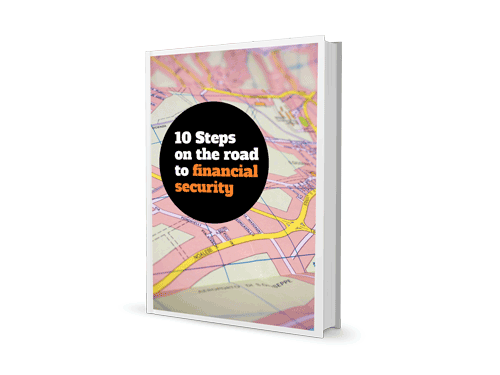Do you have all your eggs in one property basket…?

Is investing in bricks and mortar the only way to go to make money in the long run?
Read on to find out more…
“Owning a home is a keystone of wealth.. both financial affluence and emotional security”
Suze Orman
Good old bricks and mortar a stable tangible asset which people can utilise as an investment for their retirement. Unfortunately, too many people rely on their home as their primary savings strategy and that can be a mistake.
Of course, a home can mean many things to you, most of them good and it could well embody all your material hopes and dreams. For many people their house is in fact their biggest asset and the price they could ask for it today is almost certainly much higher than what they paid for it back whenever.
When disaster strikes
Many Brits who bought homes in Spain were severely hit during the 2008/2009 crisis and have only this past year shown signs of recovery.
Real-estate investments can suffer serious and sometimes prolonged downturns which could seriously hurt someone who is nearing retirement. There have been housing market downturns all over the world these past years and if history is anything to go by it can take anywhere from 10 to 20 years for some of these markets to bounce back.
If you had bought a house in Los Angeles in 1990 you would have had to wait a decade before your home’s value returned to what you paid for it. It is not only the turbulent housing market that can influence your return.
Many people underestimate how much money it costs to run a home. You have general maintenance, contents insurance, and property insurance and of course any improvements or alterations you make to the property itself. These all have to be factored in when you look at your overall return.
To rent or buy?
Of course we all have to live somewhere and it must be better the renting surely? Well yes and no.
The problem is the average mortgage in the UK and the USA is 7 years. People tend to up the size of the property and re-mortgage thus extending the payment periods and exposing themselves to the greater livelihood of real-estate fluctuations.
However, it is often argued that over the long term the home owner will do better than the renter as at least the home owner has a tangible asset and when it comes to sell the home owner could indeed be sitting pretty. This is in comparison to a renter who after paying his/her rent places the rest of his savings into an equity based investment vehicle for the same amount of time as the mortgage. This scenario is of course dependent on what stage of the market cycle the property is purchased and likewise the stage of the equity market.
Of course, it must be mentioned that so many people are looking at a future of not being home owners. In Germany, for example, there is a home ownership rate of 42%, one of the lowest in the industrial world. There, renting is the norm and there are different attitudes to buying.
The reasons are many and I will not diverse but if someone wishes to comment I can expand at a later date. In England home ownership dropped to 67.9% in 2010, the lowest since 1991 and as of 2018 sits at around 63%.
Discussions and debates have started there as well revolving around the fact that many young people looking to get on the property market ladder cannot afford the 10 – 20 % down payment.
This has indeed become the norm after the subprime mortgage fiasco in 2007/2008. Will many Britain’s become life long renters? Only time will tell.
Questions to ask before buying property
So, do I not believe in buying property? Not at all, I only advice people to think long and hard about their future, especially if it is bought as their only retirement/nest egg.
Before purchasing a property as an investment I suggest you ask yourself these questions…
- How long do I intent to stay here?
- Is this house a fixer-upper and how much money will I need to put into it?
- Is this my only investment for retirement?
- Is the currency I am buying in the currency I will be retiring in?
- Is this prospective house too big for my needs?
- If I am a foreigner purchasing the property is the local infrastructure of the country I am purchasing in stable (as an example the infamous land grab law in Spain several years ago which affected many British expats)
Don’t forget property is a non-liquid asset and you should allow a timescale for selling. Like any investment the reasons should be discussed before hand and the future yield estimated.
Research is key and those that fail to plan, plan to fail.
Feel free to let me know what challenges you are facing with your finances right now so I can develop posts and resources to help you specifically.
Please feel free to email me anytime with your questions and you can also take advantage of my free 60-minute consultation by clicking the Contact Me Today for an initial informal chat. I would be happy to review your current financial plan, offer some tips for creating one or answer any questions you might have pertaining to your investments.
About the author
Colin MacGregor is an independent financial advisor working across Europe for Professional Investment Consultants S.A. (Europe) www.pic-europe.com.
He has over 10 years experience in the advisory sector and currently resides in Prague, Czech Republic.

0 Comments